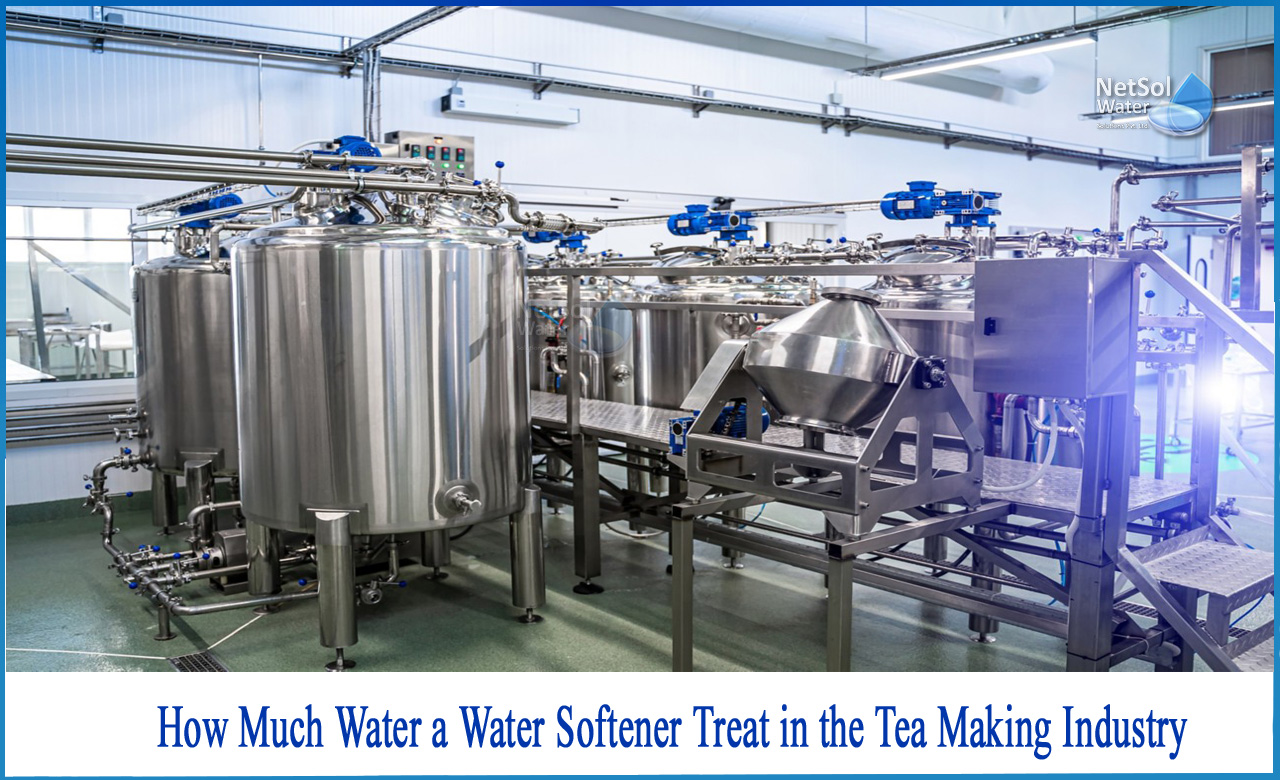How much Water a Water Softener treat in the Tea making industry?
H?ard water has three effects on tea:
1: It influences the pH, which impacts how the flavours of the tea are expressed on your palate;
2: The sulphate-to-chloride ratio offers "seasoning," and
3: Chlorine or pollutants can generate off-flavours.
Tea water should be free of any scents, such as chlorine or pond odours, in general.
Water is obtained from two sources: surface water from lakes, rivers, and streams, and groundwater from subsurface aquifers. Surface water has a low concentration of dissolved minerals but a high concentration of organic matter, such as leaves and algae, which must be filtered and disinfected with chlorine. Organic matter is often minimal in groundwater, whereas dissolved minerals are higher.
Almost any water can be used to make good tea!
If done correctly, though, water modification can make the difference between a decent tea and a fantastic tea. However, you must recognize that brewing is similar to cooking and that seasoning will not compensate for inferior components or a bad recipe.
The popular belief is that the best tea is made using mountain spring water, and this is generally correct. Mountain spring water (i.e., a pure surface water source) is ideal for brewing since it is mostly mineral-free, allowing brewers to add whatever mineral salts they see fit. And that brings us to a short chemistry refresher.
Alkalinity and hardness
The amount of dissolved calcium and magnesium in water is referred to as water hardness. Calcium and magnesium are abundant in hard water, but not in soft water. Netsol Water function by removing calcium and magnesium from the water and replacing them with sodium or potassium.
Here's the issue with good tea water-
It should be relatively less hard. It should have a total hardness of roughly 150 ppm as calcium carbonate (as a minimum).
Hardness is removed by Water Softeners, while alkalinity is not.Alkalinity and hardness are diametrically opposed. Alkalinity is the concentration of carbonate and bicarbonate, whereas hardness is the concentration of calcium and magnesium. Bicarbonates are abundant in alkaline water. Water alkalinity raises the pH of both the water and the tea, which can be problematic for the tea flavour. The pH of the water, on the other hand, isn't the most important factor.
Tea with a higher pH has a bland flavour. Tea flavours are muted when the pH is too low, and the tea loses its depth.
Hardness of the tea water must be treated
Total Alkalinity and Total Hardness figures are frequently included in the Secondary Standards or Aesthetic Standards portion of water reports because they are primarily concerned with testing for contaminants.
If you want to know more about how much hard water does a Water Softener treat in tea making industry, then you are at the right place!
We at Netsol Water can provide you with an expert solution as we are the leading manufacturersof Industrial and Commercial Water Treatment Plants, including Water Softeners and Wastewater Treatment Plants, among other services. Our treatment systems are very effective at removing all types of chemical, physical, and biological pollutants.
Netsol Water is Greater Noida-based leading water & wastewater treatment plant manufacturer. We are industry's most demanding company based on client review and work quality. We are known as best commercial RO plant manufacturers, industrial RO plant manufacturer, sewage treatment plant manufacturer, Water Softener Plant Manufacturers and effluent treatment plant manufacturers. Apart from this 24x7 customer support is our USP. Call on +91-9650608473, or write us at enquiry@netsolwater.com for any support, inquiry or product-purchase related query.



